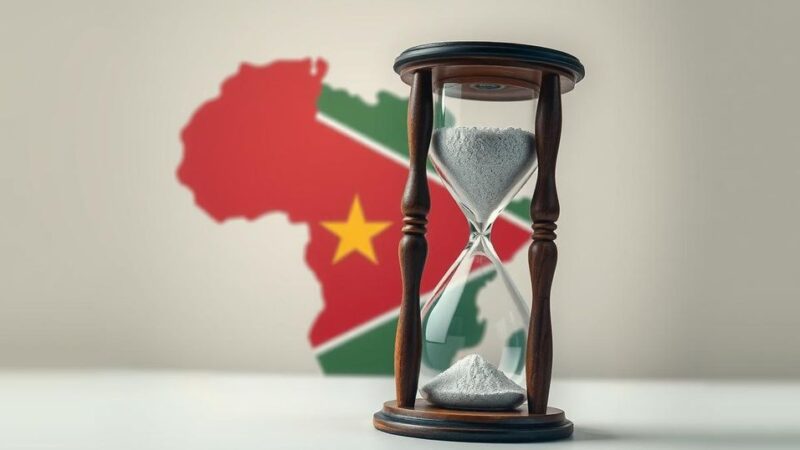Former UK Prime Minister David Cameron has proposed sanctions on Israeli ministers Bezalel Smotrich and Itamar Ben-Gvir as a means of enforcing compliance with international law. Cameron indicated that plans for sanctions were developed prior to the election but were postponed due to political considerations. UK Foreign Secretary David Lammy has condemned the ministers’ rhetoric as unacceptable. Any future decisions on sanctions may be influenced by the geopolitical landscape, especially in relation to the United States.
David Cameron, the former UK Prime Minister, has advocated for the imposition of sanctions on two Israeli ministers, Bezalel Smotrich and Itamar Ben-Gvir, to exert pressure on Israel to adhere to international law. Speaking during an interview with the BBC’s Today program, he characterized both ministers as extremists, suggesting that they have incited severe actions, including hindering aid to Gaza and promoting aggressive settler policies in the West Bank. Cameron disclosed that he had devised a plan for sanctions against these ministers prior to the general election but was advised against proceeding, deeming it politically inappropriate amidst the election campaign. Cameron’s revelations come in the context of increasing scrutiny over the Israeli government’s actions, particularly concerning the ongoing conflict with Palestinians. UK Foreign Secretary David Lammy has also condemned the rhetoric from Smotrich and Ben-Gvir, labeling it as unacceptable and expressing concerns about heightened tensions in the region. Despite having a detailed plan ready that included travel bans and asset freezes for the ministers, the decision was stalled, primarily due to fears that it would escalate political tensions domestically and potentially fuel violence in constituencies with polarized views on the Middle East conflict. Sources indicate that the United States, at the time, opposed the sanctions, highlighting the importance of a unified stance among allies when imposing such measures. Furthermore, it was suggested that any decisions regarding sanctions might be postponed until after the forthcoming US presidential elections, underscoring the complexity of international diplomatic relations. Cameron stressed that it is crucial for the UK to retain leverage over Israel, advocating for targeted sanctions instead of suspending arms sales, which would contradict the UK’s stance on supporting Israel’s right to self-defense while ensuring humanitarian aid reaches Gaza.
The call for sanctions on Israeli ministers reflects growing concerns over Israel’s compliance with international law amid ongoing conflicts with Palestinian entities. The sentiments expressed by David Cameron are rooted in the larger discourse surrounding the actions of the Israeli government, particularly regarding its treatment of Palestinian populations and the settlements in the West Bank. This discussion also intersects with international diplomatic relations, especially the UK’s partnership with the United States, which traditionally aligns its foreign policy moves in relation to Israel. Cameron’s identification of Smotrich and Ben-Gvir as provocateurs stems from specific inflammatory statements they have made regarding their approaches to the Gaza strip and West Bank, raising alarms among human rights advocates and the international community.
In summary, David Cameron has articulated the necessity of considering sanctions against Israeli ministers Bezalel Smotrich and Itamar Ben-Gvir as a means to encourage Israel to align its policies with international laws. While plans for these sanctions were developed, political considerations during election periods and the geopolitical implications of such actions have led to delays and hesitations. Given the complexities of international relations and the sensitivity surrounding the Israeli-Palestinian conflict, any future actions by the UK government will require careful deliberation to ensure a balanced approach that promotes peace while addressing violations of international standards.
Original Source: www.bbc.com






